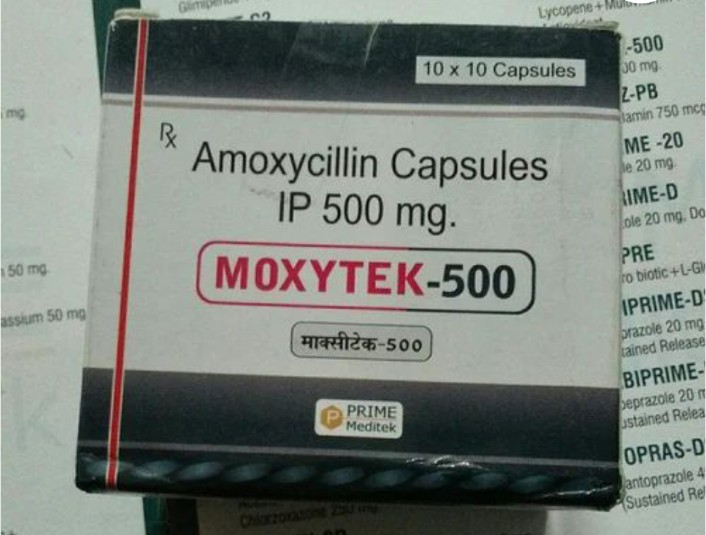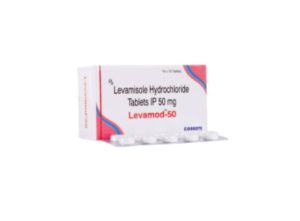
Here is a detailed review of Amoxicillin, a widely used antibiotic:
Description:
Amoxicillin is a broad-spectrum beta-lactam antibiotic belonging to the penicillin class. It works by inhibiting bacterial cell wall synthesis, leading to cell lysis and death. It is more effective against Gram-positive bacteria but also has activity against some Gram-negative organisms.
Brand Names:
- Amoxil
- Moxatag
- Trimox
- Augmentin (Amoxicillin + Clavulanic Acid)
- Amopen
Available Forms & Strengths:
- Capsules/Tablets:
- 250 mg
- 500 mg
- 875 mg
- Oral Suspension:
- 125 mg/5 mL
- 250 mg/5 mL
- 400 mg/5 mL
- Chewable Tablets:
- 125 mg
- 250 mg
- Extended-release tablets (ER):
- 775 mg (Moxatag)
Uses:
Amoxicillin is used to treat a wide variety of bacterial infections, including:
- Upper Respiratory Tract Infections: Such as pharyngitis, tonsillitis, and sinusitis caused by susceptible strains of Streptococcus pyogenes and Streptococcus pneumoniae.
- Lower Respiratory Tract Infections: Such as bronchitis and pneumonia.
- Otitis Media: Middle ear infections.
- Skin and Soft Tissue Infections.
- Urinary Tract Infections (UTIs): Caused by Escherichia coli, Proteus mirabilis, and Enterococcus faecalis.
- Helicobacter pylori Infection: As part of combination therapy to treat peptic ulcers.
- Dental Abscesses: For odontogenic infections.
- Gonorrhea: In some cases, as part of a multidrug regimen.
Side Effects:
- Common:
- Gastrointestinal: Nausea, vomiting, diarrhea.
- Rash: Non-allergic rash, particularly in patients with mononucleosis.
- Less Common:
- Allergic Reactions: Rashes, itching, urticaria (hives), and severe anaphylactic reactions (rare).
- Superinfections: Prolonged use may lead to overgrowth of non-susceptible organisms such as Candida or Clostridium difficile (leading to diarrhea or pseudomembranous colitis).
- Liver: Rare cases of elevated liver enzymes or liver damage.
Dose:
- Adults:
- General Infections: 500 mg every 8 hours or 875 mg every 12 hours.
- Severe Infections: Up to 1 g every 8 hours.
- Children:
- Mild to Moderate Infections: 20-40 mg/kg/day divided into 3 doses.
- Severe Infections: 80-100 mg/kg/day divided into 3 doses.
- Helicobacter pylori Treatment: Amoxicillin is given in combination with other medications (e.g., clarithromycin and a proton pump inhibitor).
Contraindications:
- Hypersensitivity: Patients with a known allergy to amoxicillin, penicillin, or any other beta-lactam antibiotics.
- Severe Allergic Reactions: Individuals with a history of severe reactions (e.g., anaphylaxis) to penicillins.
Drug Interactions:
- Oral Contraceptives: Amoxicillin may reduce the effectiveness of hormonal contraceptives.
- Allopurinol: Co-administration can increase the risk of amoxicillin-induced skin rash.
- Anticoagulants: Amoxicillin may prolong prothrombin time (caution in patients on warfarin).
- Methotrexate: Amoxicillin can reduce the renal clearance of methotrexate, increasing its toxicity.
Warnings:
- Allergic Reactions: Any patient with a history of allergic reactions to beta-lactam antibiotics should avoid amoxicillin.
- Renal Impairment: Dose adjustments are required in patients with kidney dysfunction to prevent drug accumulation.
- Superinfections: As with other antibiotics, overuse or misuse can lead to the development of resistant bacteria and fungal infections.
Special Considerations:
- Pregnancy: Amoxicillin is classified as Category B, meaning there is no evidence of harm to the fetus in animal studies. It is generally considered safe for use in pregnancy.
- Breastfeeding: Amoxicillin is excreted in breast milk in small amounts and is usually considered safe, though it may cause mild gastrointestinal upset or sensitization in the infant.
- Pediatric Use: Amoxicillin is commonly used in children and is generally well tolerated when dosed appropriately.
Doctor Advised:
- Complete the full course of antibiotics as prescribed, even if symptoms improve early, to prevent bacterial resistance.
- Inform the doctor of any allergies, especially to penicillin or cephalosporins, before starting treatment.
- Report any side effects, such as persistent diarrhea or rash, as these could be signs of a serious condition like C. difficile-associated diarrhea or an allergic reaction.
Conclusion:
Amoxicillin is a versatile antibiotic that effectively treats a variety of bacterial infections. It is widely used due to its broad spectrum of activity and relative safety. However, it must be prescribed judiciously, particularly in individuals with known allergies to penicillin. Monitoring for gastrointestinal side effects and signs of allergic reactions is crucial, especially in patients with a history of drug sensitivity.







